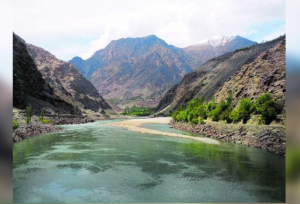Centre plans study to look into max use of Pak’s share of water under now-suspended Indus treaty

New Delhi: The Centre is planning to undertake a study to look into ways to maximise the use of the quantum of water from the three rivers that Pakistan had earlier used under the Indus Water Treaty, now that the agreement has been suspended, officials said.
The proposal was made at a high-level meeting Friday chaired by Home Minister Amit Shah that discussed the future course of action on the Indus Waters Treaty of 1960, which has been kept in abeyance following the Pahalgam terror attack in which 26 people were killed.
Under the World Bank-brokered treaty, India was granted exclusive rights to the water of the eastern rivers — the Sutlej, Beas, and Ravi — amounting to an average annual flow of about 33 million acre-feet (MAF). The water of the western rivers — the Indus, Jhelum and Chenab — with an average annual flow of around 135 MAF, were largely allocated to Pakistan.
With the treaty now put in abeyance, the government is looking at ways to utilise the water of the Indus, Jhelum and Chenab.
After Friday’s high-level meeting, Jal Shakti Minister CR Paatil asserted that the government is working on a strategy to ensure that not a single drop of water flows into Pakistan.
He said Prime Minister Narendra Modi has issued a slew of directives, and the meeting was held to follow up on them. Shah made several suggestions at the meeting for their effective implementation.
“We will ensure that not a single drop of water flows into Pakistan from India,” the Jal Shakti Minister had said after the meeting.
Sources said the government is working on a long-term plan to ensure the effective implementation of its decisions.
According to an official, the ministry has been asked to conduct a study to look at ways to utilise the water from the three western rivers.
Experts have spoken about the lack of infrastructure that may limit India’s capability of completely utilising the water it gets from the decision to suspend the treaty.
“The real issue is with the western rivers where infrastructure limitations prevent us from immediately stopping water flows,” Himanshu Thakkar of the South Asia Network on Dams, Rivers and People (SANDRP) said.
“We have several projects underway in the Chenab basin that will take five to seven years to complete. Until then, water will continue to flow to Pakistan by gravity. Once these are operational, India will have control mechanisms that currently do not exist,” Thakkar had told PTI.
Shripad Dharmadhikary, an environmental activist and the founder of Manthan Adhyayan Kendra, has also cautioned against assuming that India could rapidly divert water flows. “At present, we lack the major infrastructure needed to stop water from flowing into Pakistan,” he said.
In response to India’s decision on the water-sharing agreement, Pakistan’s Senate, in a resolution, has said the move amounted to “an act of war”.
PTI
News